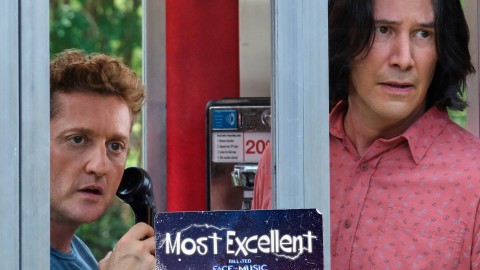
The European Union has called for changes to the music streaming business, including fairer royalty distributions and increasing payments to artists.
On Wednesday (January 17), the EU adopted a resolution to address the imbalance of revenue allocation in music streaming, including creating a new legal framework for streaming. There are currently no EU rules that apply to the sector.
In the resolution, “pre-digital royalty rates” are to be revised, with the EU criticising business models that “force authors to accept lower or no revenues in exchange for greater visibility”.
They also proposed to “reflect on the possibility” of taking action against the “overwhelming amount” of music on streaming platforms. A study published two days ago found that roughly a quarter of music on streaming services didn’t get played at all in 2023. Legislation may therefore include quotas for “European musical works.”
Furthermore, the EU called for better transparency of algorithmic and AI tools to avoid the manipulation of streaming figures (which is allegedly used to reduce artists’ fees). They also demanded that songs generated by AI to be labelled as such, for musical deepfakes to be “tackled”, and requested that platforms identify right-holders by “correctly allocating metadata” to make their works more visible.

Finally, the EU has pointed to the need for diversity in streaming revenues. They emphasised that revenues are mostly allocated to major labels and the most popular artists; less popular styles or common languages are less visible. Any EU legislation should consider both a wide spread of genres and languages, along with independent authors.
Spanish politician Ibán García del Blanco is amongst the supporters of the EU’s proposal, praising them for “giving voice to the concerns of European creators, who are at the heart of the music streaming market”.
“Cultural diversity and ensuring that authors are credited and fairly paid has always been our priority,” he added. “This is why we ask for rules that ensure algorithms and recommendation tools used by music streaming services are transparent as well as in their use of AI tools, placing European authors at the centre.”
The proposal follows Spotify’s confirmation that all songs on the platform must have a minimum of 1,000 streams before they can earn any royalties. The policy changed was slammed by independent artists such as Damon & Naomi, who claimed it would “move an estimated $40-$46 million annually from artists like Damon & Naomi to artists like Ed Sheeran.”
In other news, Spotify pulled its services from Uruguay after the country’s copyright law demanded fair pay to artists.
The post European Union demands streaming services increase royalty payments to artists appeared first on NME.








